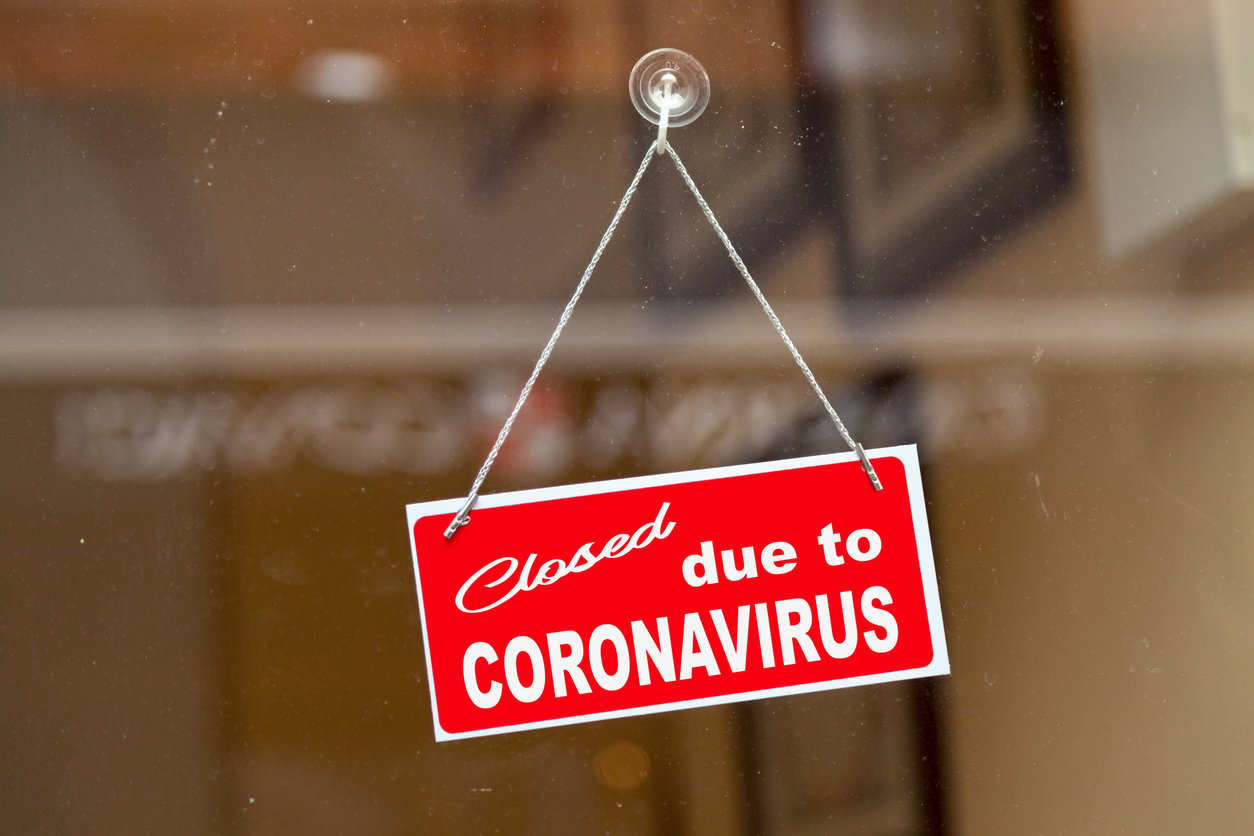Since the pandemic breakout, Britain has seen the closure of all non-essential outlets, including restaurants, bars and gyms. Businesses, especially SME’s have been hit hard by the COVID-19 outbreak and many are facing a sudden drop in revenue as they try to handle the ongoing challenges of Coronavirus.
As our brave health-care workers and policy-makers around the world deal with this pandemic, SME's in fast-growing economies are particularly vulnerable as they contend with reduced demand, disrupted supply chains and a worsening lack of finance. As SME's have never faced a crisis like Coronavirus before, businesses have turned to innovation in order to survive.
For the country’s 5.9m SME’s (that account for over 99% of all UK businesses), there is a terrifying uncertainty as to when or if things will return to normal. Businesses have an opportunity to adapt and innovate in order to meet customer demand in these tough times.
With so much uncertainty surrounding this pandemic, we want to ensure that all SME's are informed and up-to-date with how they can adapt to the challenges of COVID-19. As the Government has now eased the lockdown slightly, there is a glimmer of hope and a light at the end of the tunnel for SME’s.

Are SME’s Getting What They Need?
Since the outbreak, the Government has been very quick to announce schemes to help salvage the SME’s that are most affected and The Coronavirus Business Interruption Loan Scheme is the most well-known of these.
It was said that the Government-backed aid looked promising. This was available to firms with an annual turnover of up to £45m, the scheme provides up to £5m to qualifying businesses, with the Government guaranteeing that lenders will get over 80% of their money back if the borrower can’t repay.
Emergency Programmes for SME's
As SME’s learn to adapt to this current climate, finding support can sometimes be difficult. Luckily, the London based company Newable is among a few businesses that help’s SME’s thrive through funding and professional support.
They have launched an emergency “Small Business Resilience” programme in conjunction with JP Morgan. The ninth-month programme is focused solely on providing support for small businesses during these turbulent times.
The programme has two main focuses; to map and coordinate business support available in London and to guide SME’s through other relief options to support them with their transformation support via video calls and webinars.
During this pandemic, video calls and webinars are excellent opportunities for SME's to learn how they can adapt their businesses in order to support growing customer demand.

How Can SME’s Adapt To COVID-19?
Being Digital is Essential
Behind the sobering statistics of businesses in financial distress, thousands of SME’s are making radical changes to their business models through digitalisation.
Traditional businesses are now discovering that being digital can offer greater sustainability and resilience to their business model.
So, what does being digital at the core entail? For example, shopkeepers that only accepted cash are now having to accept contactless or even online payments. Mechanics are moving online and going mobile. Manufactorers that have previously only sold food to restaurants are now using social media to seek new customers. Businesses have been forced to think differently, and fast.
Around the world, there are over 2 million businesses that are using the Xero platform to support their businesses and we’ve seen how they’ve adapted. The Xero platform is accounting software that allows small businesses to work worldwide. Businesses can automate everyday business tasks, get up-to-date statistics and smoothly run their business wherever they are.
Alongside Xero, some SME’s have decided to use various other e-commerce platforms such as Shopify to grow their businesses further.
Toast Ale
A company that makes craft beer from surplus fresh bread and donates all profits to charity. Their team was quick to overhaul its website so they could start selling online. Previously, over 70% of their sales were from pubs, restaurants and events. However, as they have migrated online, it means they are able to continue selling directly to customers.
Hotpod Yoga
Another business that has shown great resilience in these uncertain times. With franchises across the country, they had been told by the Government to close every branch. However, after just three days, they were offering virtual classes to their customers. All instructors had to be equipped with the right tools so they could stream the classes from home.
As this idea was deemed a success with their customers, they developed a new brand: Hotpod Home, in order to meet customer demand. As it has been so popular with their customer base, they have decided to keep it as a permanent feature within their business.
Jules at Home
A village shop situated in Northampton, they have moved all of their tradings online since the COVID-19 breakout, even expanding their product ranges to meet the demand for the increasing need for garden products.
They are using Shopify in its full capacity to support their sales. By quickly adapting, they have been able to grow their business and find new customers, who have themselves welcomed Jules at Home’s extensive product range online.

Moving Forward
For businesses, these are incredibly challenging times that will likely continue to impact the nature of commerce for the foreseeable future. However, in these times, many businesses have shown the rewards available to those that adapt and innovate. Whether incorporating a more extensive product range on their e-commerce store or diversifying their product range to meet new customer demand, the market hasn’t gone away - its needs have merely shifted.
Digital tools like e-commerce apps, social media and video streaming platforms have had a huge role in keeping businesses engaged with their audiences and customers.
If you are an SME that already has a website, you might be looking for the best order management system to use. Having all of your orders in one place can help you get back into the driving seat as a seller, alleviating any extra stress you might have during this time. See our insightful blog on which order management system to use.
Coronavirus Updates
Parcel2Go will continue to issue regular guidance to our staff in-line with Government advice. All our staff are currently working from home and anyone displaying symptoms, however mild, is self-isolating.
See our Coronavirus page to get the latest updates of how the parcel delivery industry is minimising the risk of coronavirus.


.svg)

